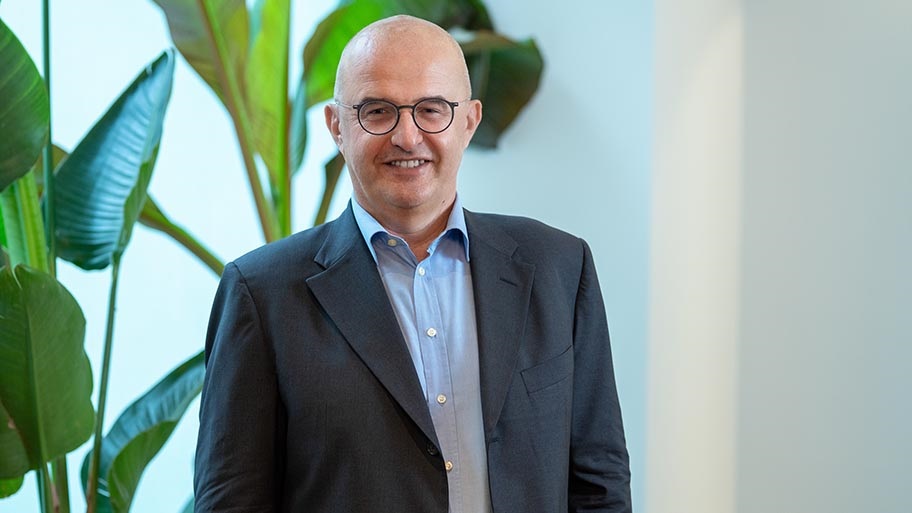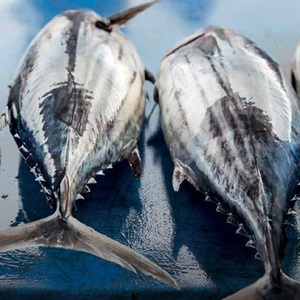Talking Tuna with Luciano Pirovano Of Bolton Food
Tell us a bit about your role in shaping Bolton’s strategy on sustainability.
I have been working in sustainability since 2008. As such I’ve had the pleasure of being one of the first to oversee this topic in the seafood sector. At Bolton Food we have the ambition of being the most sustainable and responsible tuna company in the world. That's why sustainability has to be central in both our long-term strategy and in our daily work.
What made you choose a sustainability role?
Sustainability is about the most challenging topic for humanity for the next 20, 30 years. If we think about biodiversity loss, the climate and inequalities, these are all huge challenges.
What are the challenges for a tuna company to adopt a credible strategy on sustainability?
We are living at a very turbulent time. Sustainability requires investment and a long-term outlook and sometimes in this short-term world it is not easy to be consistent. Not everything is under our control – that’s why you need to join forces to address this important topic. You need science and advocacy to push government and civil society to help in our sustainability journey.

Where does Bolton’s tuna come from and what are its most strategic markets?
Bolton is the second largest branded tuna company in the world, present in about 60 countries and No.1 in Italy and Europe. Our tuna mainly comes from Indonesia, Ecuador and the Solomon Islands.
What are your consumers’ chief concerns around tuna?
At consumer level, sustainability is becoming more and more important. More than 90 per cent of consumers consider sustainability a topic. They know that sustainability has to do with healthy oceans and avoiding overfishing. The trend is clear. Sustainability is becoming a key element of overall brand equity and product quality. So, it's a must.
Why does Bolton believe in sustainability and how does it share these principles with a global market?
We believe in sustainability because we believe it is the right thing to do. We want to work to protect the future generation. And our commitment as Bolton Food is to avoid overfishing and to have healthy oceans.
We want to influence the global sector towards better standards, and we have in place a transformational partnership with WWF. In our roadmap agreed with the WWF, we have to reach 100 per cent sustainable sourcing within 2024.
There are many standards and labels out there, why work with the MSC?
There are many reasons why we support MSC. First, because the MSC is the most well-known, internationally recognised standard. It’s a complete standard, science based, constantly reviewed – that’s why we welcome the new version 3.0.
Another reason why we are working with the MSC is because our strategic partners like the ISSF and WWF recommended MSC. Our motto is Partnership is our Leadership.
Sustainability is a complex matter. So that's why I would recommend using MSC because you stay on the safe side. You know what you are buying.
Which targets have you reached in terms of MSC certified sourcing and products with the blue label?
We are very happy with our sustainability journey. We closed 2022 with 85 per cent of our global tuna sourced from MSC certified or credible and comprehensive fisheries. It's the result of many years of work, together with WWF in our transformational partnership. The quantity of MSC certified fisheries is growing incredibly and consequently the number of blue labels on Rio Mare products in Italy and beyond is growing very fast.
What’s your favourite tuna recipe or dish?
My super favorite tuna recipe is pasta with Rio Mare tuna! Delicious.
More about tuna

Talking Tuna: Ilham Alhaq
The Sustainable Project Manager at the Indonesian Pole & Line and Handline Fisheries Association, reflects on the importance of small-scale fisheries and more.

Talking tuna: Chris Shearlock
Princes UK's Senior Sustainable Sourcing Manager reflects on credible labels, industry challenges and what gives him a buzz at work.


